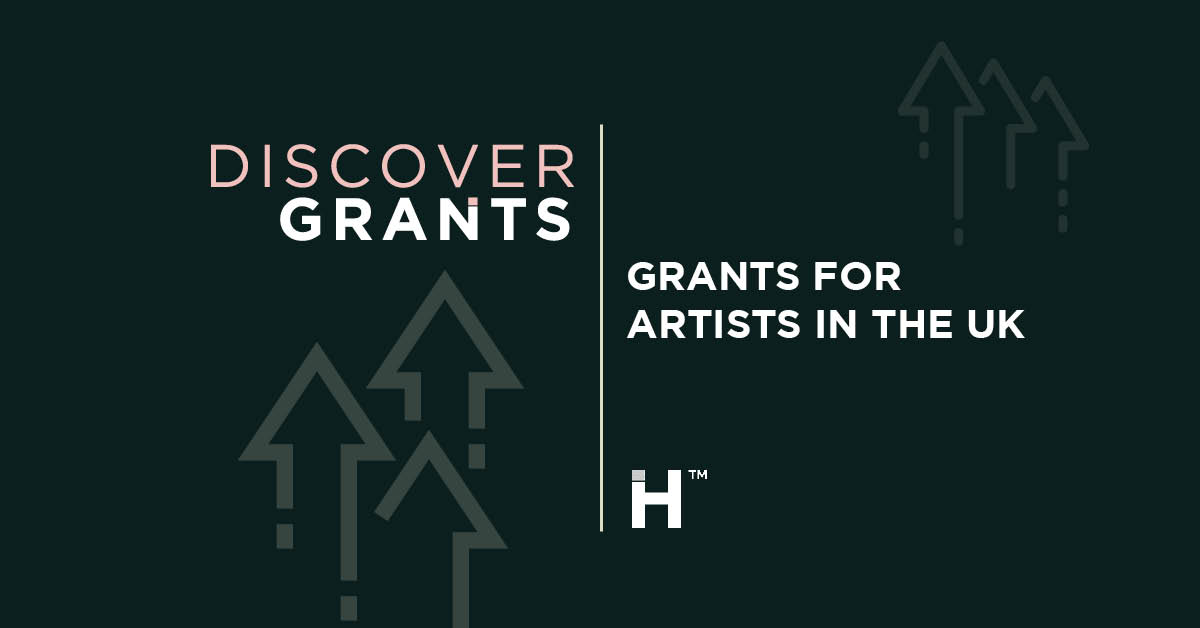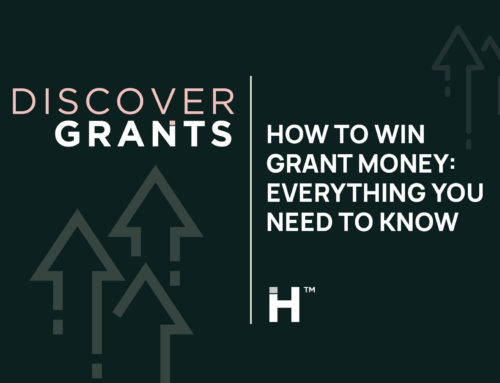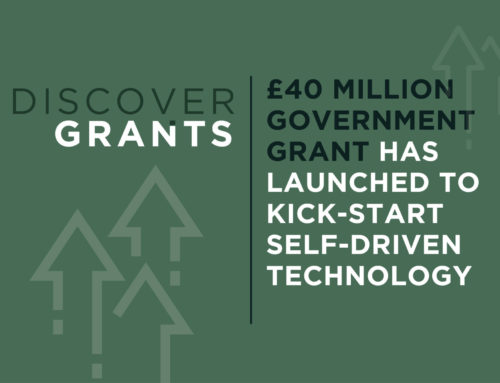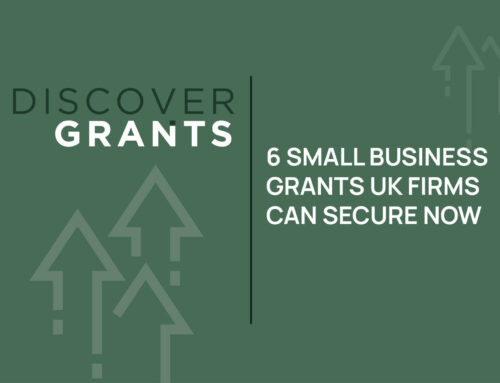Funding for artists in the UK and how to apply
Looking for grants for artists in the UK is no easy job. There is a constant stream of opportunities opening and closing all year-round. Every artist knows the struggle of being able to secure funding for your projects. The last couple of years have been especially hard because of the pandemic. Due to this, securing grant funding for artists in the UK has never been more competitive. It’s important that to secure grants for your business, you bid for funding efficiently.
Keeping track of what’s available can turn into quite the task. So, to make it easier, we have included a list of available funding for artists in the UK. It includes grants for artists in the UK that are open year-round and our top tips for applying.
What are the benefits of funding for artists?
One of the best benefits of funding for artists is that it allows artists to be creative. A lot of artists struggle to find the time to do so. Often because they are working just to make sure they can afford rent and bills. With funding for artists in the UK, artists can take the time to focus on their passion. This is a great opportunity for artists who have projects to work on but no time to do them. A lot of funding is to be spent however the winner requires. So, even if it’s just to cover rent, it is still incredibly beneficial. They may not have great income, so funding to purchase art supplies is also a big benefit.
Funding for artists in the UK that’s open year-round
Black Artists Grant
The Black Artists Grant (BAG) is a grant for black artists in the UK that is available year-round. This grant has been set up because black artists are systematically under-supported by the art world.
What’s available?
£1,500 is given out monthly to black artists in the UK, with each artist selected getting £500 each. It can be spent on whatever they want, be it new equipment and materials, research or even just living expenses.
How to apply
Recipients of the grant for artists in the UK will be chosen monthly. Every few months, the selector will change. Often, the selectors will do research to find artists who they think would benefit from the money. However, you can flag your work to them or put yourself forward. You can do this via email. You should include:
- Your name
- Contact information
- Some images of what you make or do (via attachments, a link or online portfolio).
Short Film Fund
The First Flights Short Film Fund is for live-action and documentary short films of any genre. The Short Film Fund allows new talent to test their ideas before embarking on a feature film. The fund can act as a development platform to support short films as a proof of concept for feature films.
What’s available?
A grant of up to £7,000 is available towards the production costs of scripted and documentary short film content.
When can I apply?
The grant is open bi-annually and the opening dates for 2021 are April 1st and August 1st.
Project submissions will need to include:
- Project details
- Logline (30 words)
- Synopsis (250 words)
- Director’s vision – creative ideas and information on why the story is important and who it’s for (250 words)
- Completed script (no more than 30 pages)
- Biography of the director/writer/producer with IMDB pages and diversity questions
- Budget
- Optional: look book and sizzle reel.
Creative Scotland
Creative Scotland offers a number of grant funds for artists based in Scotland in accordance with The National Lottery. The fund is open all year round with no deadlines, and can support activity for up to 12 months. They will accept applications in English, Gaelic or Scots and it’s open to everyone. The purpose of this funding opportunity is to sustain the creative community in Scotland during and after COVID-19.
What’s available?
Funding for artists is available between £1,000 and £100,000. If you’re applying for grants between £15,001 – £100,000, you’ll need to tell them more about elements of your project.
They have two stems of funding available:
- Open Fund for Individuals: Sustaining Creative Development
- Open Fund for Organisations: Sustaining Creative Development.
Who’s eligible?
You must be based in Scotland and your work or project involved in the arts, screen, and creative industries. You must have a UK bank account.
What’s the assessment criteria?
Applications will be assessed against the following criteria:
- Strength of the impact of the project or activity idea, or its contribution to supporting creativity in others.
- Creative and/or artistic strength of the project or activity idea, or its contribution to supporting creativity in others.
- Strength of plans to achieve the project or activity including financial planning.
There are plenty of grants for artists in the UK available, covering a wide array of the creative sector. It’s best to keep an eye on the funding opportunities that are available year-round. Try not to be put off if you aren’t successful the first time around. Always ask for feedback from a funder and keep trying.
Examples of other opportunities
Artes Mundi Prize
- Biennially – even-numbered years.
- Top prize of £40,000, with runners-up awarded £4,000. The work of short-listed artists is displayed as part of the Artes Mundi exhibition at the National Museum Cardiff.
- Open to any artist of any age and nationality whose work explores the human condition.
- Focus on international contemporary visual artists who engage with social reality and lived experience.
- Open call for nominations artists via an online form. Artists can be nominated more than once across successive cycles. Two selectors then determine a shortlist of 5–7 artists for exhibition. A prize-winner is selected by a larger panel of eminent judges that does not include the original selector.
Flamin Productions
- Annual.
- Two to five awards of between £20,000 and £50,000. Development bursary of £1,000 and access to professional expertise for shortlisted applications.
- No age limit, but artists must have a London address. They must also have previously exhibited at festivals, cinemas, or galleries.
- Focus on supporting experimental works that represent a significant step forward in the work of the artist.
- Up to 15 artists shortlisted for two to five awards. Selection carried out by Film London head of production, FLAMIN manager, Film London board member and three external assessors.
Hugo Boss Prize
- Guggenheim Foundation, Solomon R Guggenheim Museum.
- Beinnial.
- Award of $100,000.
- No age, gender, nationality, or media restrictions on eligibility.
- Nominations include emerging artists as well as distinguished professionals who are due recognition.
- Focus on rewarding work that represents a significant development in contemporary art. Hugo Boss sees the prize as ‘…underlining our commitment to the arts as an integral part of our corporate culture’.
- A jury of curators, critics and scholars nominate six or seven artists for the shortlist and subsequently chooses the prize-winner.
BP Portrait Award
- National Portrait Gallery.
- Annual.
- Award of £30,000 for first-prize winner with a total prize fund of £61,000.
- Unrestricted entry.
- Focus on promoting young figurative painting. More traditional outlook.
- In 2015, a new procedure was introduced which required artists to submit a digital image of their work. 456 works were selected for second stage judging where the original paintings were viewed, and the exhibition selection made.
Arts Council of England
- Open applications throughout the year.
- Grants may range from £1,000-100,000. The average grant made to visual artists in 2015/16 was £17,486.00.
- The artist’s activity must take place mainly in England. There are some exceptions to this, when artists from England are involved in activities in other countries.
- The proposal is appraised across four main areas:
- Artistic quality – The quality of the activity and the quality of effect the activity will have on the people experiencing it. Also includes its ongoing effect on artistic practice.
- Public engagement – how the public will engage with the activity, immediately or in the long term.
- Management – how the activity will be managed and its ongoing effect.
- Finance – how realistic the activity is financially and its future effect.
- Grants for the Arts are for activities carried out over a set period. They engage people in England in arts activities and help artists and arts organisations in England carry out their work.
Baloise Art Prize
- Annual – winners are announced at Art Basel fair.
- Two top prizes of £21,770. Prize includes the acquisition by Baloise of a selection of works by the award winner. Baloise buys groups of works by the prize-winners with the object of donating them to two leading European museums. Currently the MMK, Museum für Moderne Kunst, Frankfurt and the MUDAM, Luxembourg.
- Eligibility limited to ‘emerging artists’, but candidates can be of any nationality.
- ‘Baloise believes that the privilege of owning art brings with it the obligation to present it to a wider public.’
- Winners chosen by a jury of five curators and art directors.
Elephant Trust Grants
- Trustees meet four times a year to consider applications, as advertised on website.
- Grants of up to £2,000. But with the addition of the Shelagh Wakely Bequest, some larger grants of up to £5,000 may be awarded.
- Awards are available to UK artists for new, innovative visual projects. Small organisations and galleries are also eligible.
- Aims to make it possible for artists to undertake and complete projects when confronted by lack of funds.
- Open application by post. Requires projected budget, visual material and CV.
John Moores Painting Prize 2010
- National Museums Liverpool/ Walker Art Gallery/ John Moores Liverpool Exhibition Trust.
- Biannually – to coincide with the Liverpool Biennial.
- First prize of £25,000 with four other prizes of £2,500. In addition, the winner of the popular ‘Visitor’s Choice’ prize will win £2,016 (in 2015). Exhibition at Walker Art Gallery for selected works.
- Artists must live or be professionally based within the UK. Candidates are judged on a particular piece.
- Marketed as the UK’s biggest painting prize.
- Open submissions shortlisted by a jury. Works must then be submitted through six depots across the UK and are brought to Liverpool for judging. Paintings worthy for exhibition and prizes are then selected.
Jarman Award
- Film London, Channel 4 and The Whitechapel Gallery.
- Annual.
- One award of £10,000 and a broadcast commission from Channel 4, worth £20,000.
- Any mid-career filmmaker from the UK can be put forward for the prize.
- Focus on innovative artist filmmaking. ‘The award is a means of recognizing artists who are changing the rules of the game’.
- Ten artists shortlisted for a single prize. Winner chosen by a jury of five, including representatives from The Whitechapel Gallery and Channel 4.
Arts Council of Ireland
- Open applications throughout the year.
- Grant sizes vary depending on the fund.
- Arts Council of Ireland’s strategic context for the support of visual arts has five priority areas:
- – The artist
- – Public engagement
- – Investment strategy
- – Spatial and demographic planning
- – Developing capacity.
- Visual arts include a range of media such as painting, drawing, sculpture, printmaking and photography. As well as live art/performance, film, video, or other digital imaging media.
Arts Council of Wales
- Arts Council of Wales and Creative Wales Awards.
- Open grants are available to any type of artist and ranged from £12,500-25,000 in 2015/16.
- Applicants should live in Wales and the proposed project should happen in Wales.
- The Arts Council of Wales believes:
– In the power of the arts to transform people’s lives, and to change communities.
– That everybody in Wales should have access to quality arts experiences and have the opportunity to enjoy the arts.
– That artists need to be supported to develop their talents, and should have the opportunity to develop their careers.
Jerwood Drawing Prize
- Annual.
- First prize of £8,000, second prize of £5,000 and two student awards of £2,000 each. Between 60–70 artists are also selected for an exhibition.
- Open to all artists residing or domiciled within the UK.
- The country’s leading award in drawing, and the largest/ longest running annual open exhibition dedicated to drawing in the UK.
- Selection by panel – artists are invited to submit their works through regional collection centres.
Lynn Painter-Stainers Prize
- Lynn Foundation and Worshipful Company of Painter-Stainers.
- Annual.
- First prize of £15,000, five runner-up prizes of £1,500, young artist award of £2,500. There is also a £5,000 prize for works of the human figure (for artists 30 years or under). Complemented by an exhibition at The Mall Galleries, London, featuring a wider range of paintings from the field of submissions.
- Open to all UK based artists over 18 years of age.
- The purpose of the prize is to encourage creative representational painting and promote the skill of craftsmanship. All work must be for sale, except commissioned portraits.
Mark Tanner Sculpture Award
- Standpoint Gallery and the Mark Tanner Charitable Trust.
- Annual.
- MTSA intends to support the creative work of the recipient over one year. The financial award to assist in the production of a new body of work is £8,000. It is made in 3 payments over the course of the year. At the end of which, there will be a solo exhibition at Standpoint Gallery. All reasonable costs incurred for this exhibition will be met by Standpoint, including publicity, transport and hospitality.
- Candidates must live and work in the UK. There is no age limit – ‘…we seek to give the award to an artist who demonstrates the development of a mature practice. But also to whom the prize would make a considerable difference’. Candidates must have graduated at least one year previously from formal art education.
- MTSA is aimed at emerging/mid-career sculptors making outstanding work within contemporary fine art practice. The award is particularly interested in work that demonstrates a commitment to process and material.
- Shortlisting by written application and digital submission of work via a panel including two guest selectors. Final selection through presentation and interview at Standpoint.
Jerwood Makers Open
- Annually for three years.
- £7,500 for makers submitting proposals for new work. The work will then be exhibited in London before touring the UK.
- Open submission.
- Focus on recognising making practices within contemporary visual arts. It offers crucial support in the early stages of their careers. This enables the selected artists to develop their creative ideas independently of specific commissioning structures.
- Recipients selected by a panel of three.
How to write a proposal for funding for artists
-
Ask yourself the following
Before you start any grant application, you should ask yourself the following questions:
- What will I do?
- How will I do it?
- Where will I make it or where will I perform, publish, or show my project?
- Why is it important to get funding and why is this an important project to myself and others?
-
Make sure you’re eligible
There’s nothing worse than putting all your blood, sweat, and tears into an application for it to be instantly rejected. The most frustrating thing is when you realise this could have been easily avoided had you read the specification carefully. Reading the eligibility criteria and specification thoroughly is crucial before submitting any grant proposal. It may detail a specific requirement or criteria that is needed in order to qualify.
If you’re unsure, the funders will be more than happy to answer any questions you may have. Although, double-check that the answers are noted in the specification, as they often will be. Most funding specifications will have an FAQ section which is good to check before calling up.
Make sure to apply for grants that fit you and your project, not the other way round. There is an abundance of grants for artists in the UK available at various times of the year. It’s likely that a grant will come up that matches your project perfectly. This is the type of funding you should go for. You should never try to make your project fit a funders specification.
-
Plan ahead
Planning your art grant proposal needs to be done in advance. It can’t be a spur of the moment kind of thing. Funders want to see every aspect thought out and justified. Remember that there can be logistical or technical difficulties when it comes to submitting your proposal. Due to this, you should plan extra time to allow these disruptions plenty of time before the final submission deadline. Make a checklist of important dates, details that you need to cover and attachments you need to include.
Pro Tip: If possible, hire a professional artwork photographer to take portfolio pictures of your work. Additionally, if that’s not an option, you could try to barter skills or artwork. You could try trading artwork or any other professional service if they’re open to it. However, if you have your work DSLR, you can, of course, take your own pictures. Grant funders will be understanding that you won’t always have the resources to hire professionals or the best kit.
-
Be detailed and persuasive
Your grant proposal should be detailed and cover all the points detailed in the specification. The awarding body will often note the specifics of what they want you to cover and detail within your proposal.
If a format is noted, make sure you align to it. A funder will often favour the more visually appealing or clearly laid out proposals. Try breaking up your text into heading and subheadings. Including bullet points is another good way to emphasise key points. Try and hit as close to the word or page counts noted as possible. Avoid overly technical jargon and be persuasive. Convey your excitement, passion, and desire in your writing. Remember that the funders are human and want to be excited by your ideas.
-
Proofread before you submit
Having either a friend or co-worker read your proposal before you submit can be a great help. You could even proofread it yourself. Leave a couple of days in between so you look over it with a fresh perspective. This will help you pick up on any mistakes or gaps in information. You should factor this time in to your plan. Allow for plenty of time to complete your proposal, have it proofread, re-edit and proofread again before you submit. Ask yourself:
- Is anything unclear?
- Could something be explained further?
- Have I covered every aspect of each question?
- Is there any awkward language?
- Can I cut any unnecessary points or rambling out?
- Is anything missing?
- Can you picture my project?
- Do I justify why I need the funding and how it will help me and others?
If you’re struggling with where to start with your grant proposal, a Grant Writing Consultant can help. They are experts in writing proposals for funding, knowing what funders are looking for and how to best convey it. A Grant Writer will be able to give you an edge over your competitors when it comes to your application.
Summary
Let’s sum up everything we have gone over. For funding that is open all year, check out:
- Black Artists Grant
- Short Film Fund
- Creative Scotland.
We also included some examples of various art funding opportunities. This is to give you an idea of the types of funding that can be available. They were:
- Artes Mundi Prize
- Flamin Productions
- Hugo Boss Prize
- BP Portrait Award
- Arts Council of England
- Baloise Art Prize
- Elephant Trust Grants
- John Moores Painting Prize 2010
- Jarman Award
- Arts Council of Ireland
- Arts Council of Wales
- Jerwood Drawing Prize
- Lynn Painter-Stainers Prize
- Mark Tanner Sculpture Award
- Jerwood Makers Open.
Want to know how to write a proposal for funding for artists? Make sure you consider the following:
-
Ask yourself the following:
- What will I do?
- How will I do it?
- Where will I make it or where will I perform, publish, or show my project?
- Why is it important to get funding and why is this an important project to myself and others?
-
Make sure you’re eligible
Make sure you are actually eligible for any funding you apply for. You don’t want to spend hours of your time creating work, all for it to be pointless.
-
Plan ahead
Make sure you are prepared and give yourself plenty of time to get things done. You don’t want to rush and make mistakes!
-
Be detailed and persuasive
You need to persuade the reviewer that you are the right fit for the fund. So, make sure you back up your points and use persuasive language.
-
Proofread before you submit
You don’t want little mistakes to slip through the cracks! Make sure you read your work multiple times to check for errors.
We hope this blog has given you more insight into the opportunities available for artist funding. If you need further assistance, you can call us and speak to one of our experts.
Need help with writing your grant application?
Our Grant Writing Service is for businesses who want to start applying for grants, but don’t know where to begin. If you don’t have the resources or the time in-house to write a winning grant – we can help. Our Grant Consultants have over 60 years of experience in bidding for funding and grants. Whether it’s council business grants, start-up business grants or grants for charities, we can help. They can take care of the whole thing for you – they’ll even submit it on your behalf.
Get in touch to find out how we can help your business grow!
Our Grant Tracker service is open. It hosts all the latest grant opportunities in the UK from 1,500 data points. Opportunities are manually tracked, enabling for accurate keyword labelling, optimising your search for the perfect grant.
You can sign up now!
Find more helpful tips and advice in our blogs. We cover topics including:
- How a Grant Writing Consultant can help your business
- Innovate UK grants
- Start-up business grants
- Business grants in the UK
- How to apply for a government grant
- Working with Grant Writers
- Bidding for funding
- Council business grants
- Government funding
- Grant writing help
- And many more.





